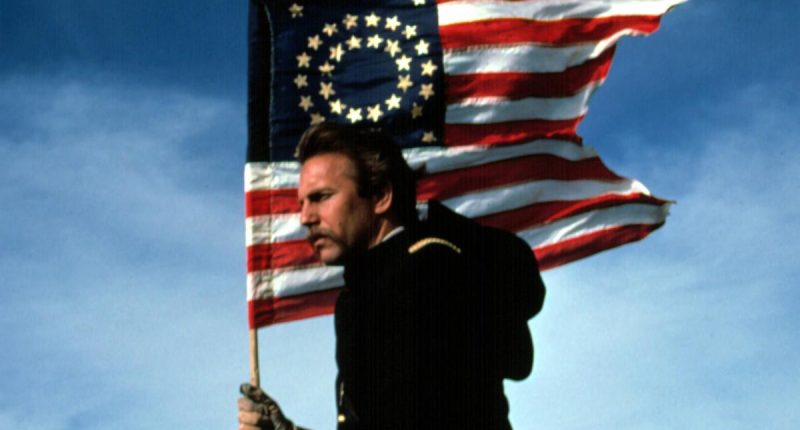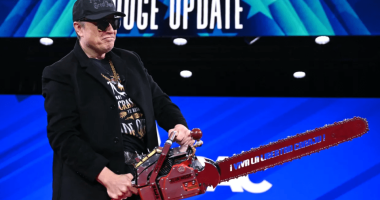Share this @internewscast.com
This Fourth of July, take a moment to remember the Kevin Costner fans in your life (or perhaps that’s you). We’ve just passed one year since Costner’s epic project, Horizon: An American Saga, first hit theaters — or at least its initial part. The second part is already finished and has made appearances at a few festivals, but there’s been no word on when it will be widely available, whether on screen or streaming. Meanwhile, the third installment is currently stalled, and plans for a potential fourth movie seem uncertain. Although the second chapter of Horizon is likely to be released at some point, while you wait, a streaming service has added the extended four-hour version of Costner’s Oscar-winning film Dances with Wolves to its lineup. This is possibly the film that inspired Horizon in the first place. If you haven’t seen Costner’s directorial success, are unaware of its longer version, or just want to experience a nostalgic Best Picture winner, the Fourth of July weekend is an ideal time to enjoy a Costner epic. And if four hours seems too much, the original Oscar-winning version is also available.
Why Watch Dances with Wolves Tonight?
Back in the early ’90s, Costner was at the pinnacle of his movie-star career, enjoying a streak of hits like Bull Durham, Field of Dreams, Robin Hood: Prince of Thieves, JFK, and The Bodyguard. During this time, he surprised many by winning a Best Director Oscar for his western film Dances with Wolves. Predictably, as is the case with many Best Picture winners, Wolves faced some backlash post-award, being labeled as undeserving; notably, Costner drew criticism for winning as an actor-turned-director over a master like Martin Scorsese, whose Goodfellas was a fellow nominee in 1990 and has since been recognized for its enduring quality. Furthermore, some questioned if Dances with Wolves was just another narrative of non-white cultures told through the eyes of a white character. Didn’t another Oscar-winning western, Unforgiven, tackle the complexities of western myths versus historical reality more effectively?
Indeed, Goodfellas and Unforgiven are arguably superior to Dances with Wolves. However, they stand out as some of the greatest films overall, and Costner’s unexpectedly subtle and laid-back western has stood the test of time quite well. Remarkably, despite Costner’s image as a representative of small-c conservatism, Dances with Wolves adopts a refreshingly peaceful, even hippie-like, stance, advocating for anti-war and pro-peace themes.
Costner plays John Dunbar, a Union soldier in the Civil War whose unexpected battlefield victory leads to his choice of assignments. He chooses a remote outpost in Colorado, which through a series of odd circumstances becomes his and his alone; no other soldiers arrive to fortify it. Eventually, he makes peace with a local Sioux tribe and becomes accepted into their culture, romancing a white woman who has been adopted into the tribe. Eventually, he fights with the Sioux against the U.S. Army, who are trying to round up the tribes.
It’s a simple story, which Costner spreads out over a leisurely three hours in his original cut, and four hours in the extended version. It should be noted that the latter isn’t officially Costner’s “director’s cut,” but rather a version that was released in London theaters a year after the film’s initial debut. Costner promoted it at the time, but has since said that he didn’t work on it directly (apart from, you know, directing all of the footage that was incorporated back into the longer cut). Producer Jim Wilson described the longer cut in an interesting way, saying that it essentially fulfills a function similar to a sequel: Additional time with characters and storylines that audiences liked, only integrated back into the film rather than expanded into a second. Even if he didn’t participate in the re-editing process, Costner seems to like this idea in principle; Horizon was clearly designed as one long thing, not a single western that might later inspire follow-ups.
The general consensus is that the “shorter” (still three-hour) Dances with Wolves is the better-paced version, but part of the movie’s beauty is how it doesn’t depend on heedless momentum and can therefore accommodate extra character moments and scene-setting without feeling too bloated. In both versions, Costner lets sequences and character developments breathe; all of the westerns he’s directed himself are on the longer side, but it’s Wolves that feels most sustained in its poetry. For all of the white-savior talk (and it’s not totally invalid), what comes through the movie is a feeling of genuine respect and reverence for the Sioux people, and the ways that a white soldier might find them more relatable than the culture he was raised on. So many picks for Independence Day-themed movies focus on the heroism and sacrifice of the U.S. military; Dances with Wolves feels equally All-American by giving screen time and empathy to people who were here before settlers, colonists, and various soldiers marched through the country. Costner has starred in plenty of movies dealing with both the promise of America and the thorny, complicated realities of the country. But Dances with Wolves may be his best tribute to this country.
Jesse Hassenger (@rockmarooned) is a writer living in Brooklyn podcasting at www.sportsalcohol.com. He’s a regular contributor to The A.V. Club, Polygon, and The Week, among others.
Stream Dances with Wolves Extended Cut on HBO Max
(function(d, s, id) {
var js, fjs = d.getElementsByTagName(s)[0];
if (d.getElementById(id)) return;
js = d.createElement(s); js.id = id;
js.src = “//connect.facebook.net/en_US/sdk.js#xfbml=1&appId=823934954307605&version=v2.8”;
fjs.parentNode.insertBefore(js, fjs);
}(document, ‘script’, ‘facebook-jssdk’));
















